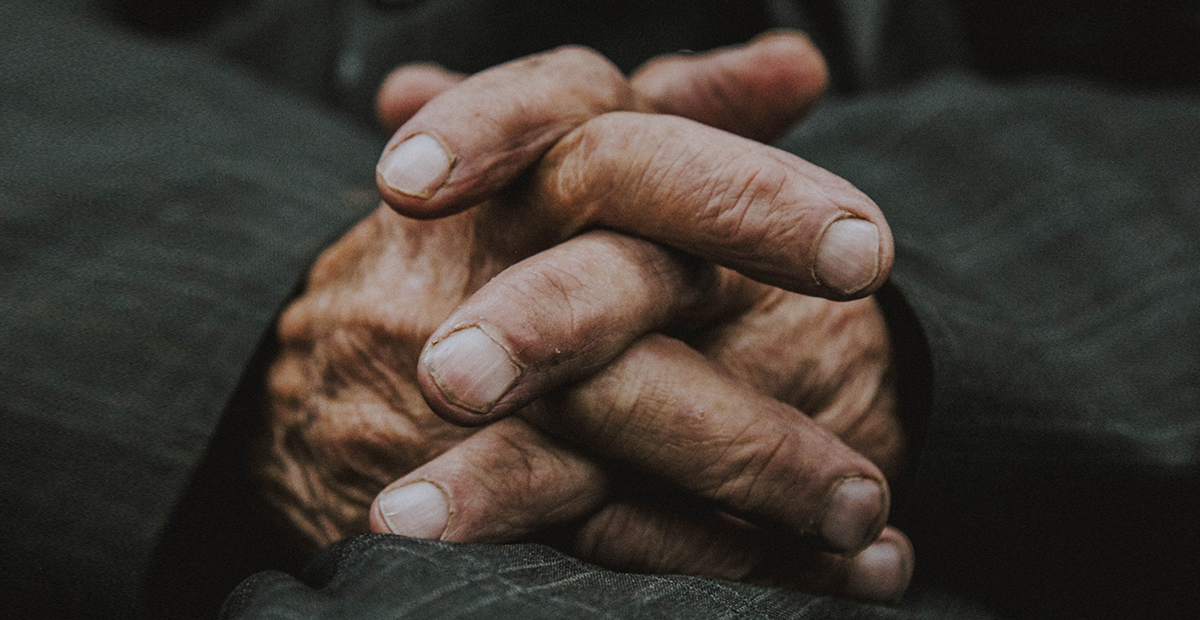Tips for the Aging Woodwind Player
From 94-year-old Clarinetist, Martin Frank
Date Posted: September 29, 2020

Photo by Zahra Amiri
My Background
I started having serious interest in playing the clarinet 51 years ago at age 43. When I was 12, I was given a metal clarinet and a series of lessons at Gimble Bros. dep’t store. I chose the clarinet because I loved Artie Shaw’s playing. However, after the lessons were over I didn’t play for the next 30 years. In the interim I started Temple University as a premed, and then was drafted into the US Navy.
I served as an electronic technician on the USS Adams DM27 sweeping mines around Japan during and after WW ll. The only combat I saw was on a shore patrol duty in Shanghai when we had a rather rough physical encounter before subduing three drunken US sailors
On returning to the US, I continued at Temple University and then Hahnemann Medical College with help from the G.I. bill of rights, and worked intermittently at various jobs including a Breyer’s ice cream factory, a dairy facility, and also drove a taxi two summers on the night shift.
I trained in Internal Medicine and Cardiology at Philadelphia General Hospital and subsequently practiced at Abington Hospital for 44 years before becoming chief of cardiology at Abington Hospital and Adjunct Associate Professor of medicine at Temple University. With various co-authors I had 13 research papers published mostly in peer reviewed journals and was once voted physician of the year. One of my sons heads the Carolina Medical Center Heart Transplant Center. Over the years I’ve blessed with 5 wonderful children, 14 grandchildren, 2 stepdaughters with 3 more grandchildren.
My Return to the Clarinet
I resumed the clarinet at age 43 after being grounded from tennis for a while due to a back injury, and felt the need for something to do. So I began clarinet lessons at the Settlement Music School in Philadelphia.
My wife, who is also a clarinetist, was a Bennington graduate and noticed that there was a summer music camp at the college. I decided to go there. That resulted in the awareness that I knew very little about chamber music and had serious problems with novel meters and difficult rhythms. By their present standards I would never have been accepted.
The coaching at Bennington has always been excellent and participants are expected to be well prepared and prepare for assigned pieces including studying the score. As it turned out. I went for there for 36 years mostly for two weeks at a time. I’ll always treasure the musical growth and camradery of this experience.
Having been duly chastened by awareness of my musical deficiencies I got serious and started lessons with Donald Montanaro of the Philadelphia Orchestra. The first lesson was entirely limited to blowing an open G. These sessions went on intermittently for about 30 years. Coincidentally, I’m told Donald also was instrumental in designing the M series of clarinet mouthpieces for Vandoren, a major world-wide producer of clarinet mouthpieces and reeds.
Donald was an excellent coach and has many students who are in major orchestras. We had a sort of symbiotic relationship as he could have rationed his time for younger and more talented students. With his help, I eventually gave a credible performance of the Mozart Clarinet Concerto with a local symphony orchestra.
"My hope is that by sharing my experiences, others in my situation might enjoy similar results." - Martin Frank
My Advice to Aging Reed Players
Today, as a 94 year-old active wind player, I continue to play in quite a few different ensembles. However, I began experiencing age related progressive fatigue of the lips, and jaw (masseter) muscles which was limiting how long I could play. Consequently, I began instituting corrective measures which gradually produced a significant increase in my endurance. My hope is that by sharing my experiences, others in my situation might enjoy similar results.
I started by playing till the slightest sense of fatigue or discomfort occurred. Then I would take a break till I felt fully recovered. This was repeated several times until time constraints ended the exercises. The resistance of the instrument is an important factor in inducing fatigue. I discovered several ways to help overcome this problem.
1. Choice of Mouthpiece
Choosing an appropriate mouthpiece is very important. A mouthpiece with a narrower tip proved helpful for me. A wider tip requires more air and effort. Personally, I play an M14 mouthpiece that Don Montanaro gave me. This mouthpiece is no longer in production, but I also use an M13 Lyre.
2. Use Proper Reed Strength
A lighter reed can also be an effective measure to reduce resistance. This may impact tone quality initially, but better to play than not to play (apologies to Shakespeare). I play on V12 #2.5 reeds.
3. Cane vs. Synthetic
I prefer using cane reeds because you can make adjustments on the reed which is difficult to do with plastic reeds.
4. Wider Bore Barrel
If further steps are needed, a change to a wider bore barrel, or having your repairman ream the barrel might also be helpful.
One final technical consideration to be aware of: A cold environment decreases blood flow to the fingers resulting in some shrinkage of the fingertips. This may cause incomplete coverage of the bottom right-sided tone holes especially the G/D hole on the clarinet. Incomplete sealing of the tone hole may cause unwanted sounds in your own practice and performance.
Try putting your hands in warm water for a minute or two, and that should solve that problem.
I hope this information is helpful. Attention to these areas has helped me continue playing to my current age of 94. I hope these tips allow you to enjoy similar results.